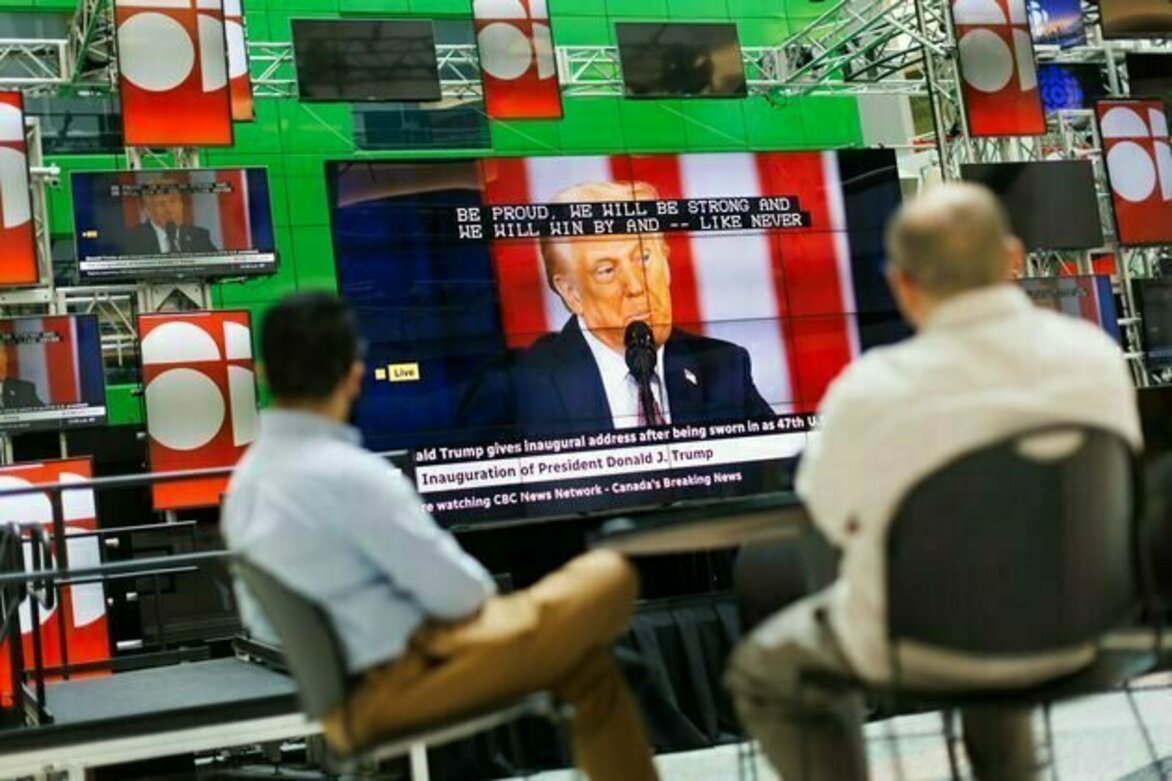The attack on public broadcasting is part of a growing threat to press freedom and democracy
The Conversation
08 May 2025

In a disturbing parallel between two countries, President Donald Trump's recent attack on the two largest public broadcasters in the United States mirrors threats to Canada's own public broadcaster that were recently dodged by the electoral defeat of Conservative Pierre Poilievre.
These attacks are part of a larger authoritarian move to slander and disempower a free and independent press.
In the grab to reclaim power from the people, authoritarians and the oligarchs who support them recoil from criticism and dissent, demanding that all people support government positions regardless of the rationality of their claims.
While they may come for the media first, other institutions are also targeted, including those that nurture critical thinking and uphold the rule of law.
Read more: Yale scholars' move to Canada can prompt us to reflect on the rule of law
The news media are a key pillar of democracy and a vigilant monitor of human rights. Often identified as the Fourth Estate, the press is tasked with keeping political power in check while informing people about events beyond their own experiences. This function makes it a prime target for authoritarian assault.
Both Poilievre and Trump have long attacked the integrity of journalists as they worked to undermine public trust in the media. They both denigrate reporters and limit media accessibility.
With accusations of fake news and attempts to discredit journalists as leftist and partisan propaganda pedlars, Poilievre and Trump's call to defund public broadcasters seems aimed at silencing criticism and obscuring oversight of their actions.
Public broadcasters like PBS, NPR and CBC/Radio-Canada provide vital links to news and life-saving information in times of crisis. They inform regions that no longer have access to local corporate news and they educate the public and strengthen its culture.
Public broadcasters receive public funding through government legislation, but make no mistake, these are not state propaganda machines as some politicians allege.
CBC/Radio-Canada, PBS and NPR are all governed by broadcasting acts within their respective nations. CBC/Radio-Canada's editorial independence is protected by the federal Broadcasting Act. In the U.S., the federal Public Broadcasting Act assures PBS and NPR have "maximum freedom ...from interference with, or control of, program content or other activities."
These media outlets are publicly funded but their editorial independence is enshrined in law.
My exploration of the framing practices of public broadcasters, mainstream corporate media and alternative news agencies in Canada and the U.S. lends support to the expressed independence of publicly funded broadcasters.
This research tracked press coverage of debates about sexual orientation and gender expression in schools over a 10-year period - from Trump's initial declaration to seek the Oval Office in 2015 to his return to power in November 2024.
From an initial sample of close to 38,000 news stories, 60 were randomly selected and subjected to multimodal critical discourse analysis.
A third of these stories were produced by publicly funded news agencies. Findings suggest that while they consistently use polarizing conflict language to present debates to the public - just as corporate and alternative media outlets do - the majority of the publicly funded news accounts I examined adhered to the principles of fact-based reporting.
These principles include accuracy and objectivity in reporting as well as the inclusion of a balance of perspectives on a given event, and the maintenance of a non-partisan approach to coverage.
Only one story produced by a public broadcaster in the U.S. represented propaganda in its attempt to persuade the audience to agree with the biased argument presented within. It was an educational video debunking claims that critical race theory was being taught in schools.
None of the content produced by public broadcasters represented examples of movement journalism, which rejects objectivity in favour of activism to promote human rights and social change.
While these findings cannot be extended to all content produced by public broadcasters, they do suggest these news agencies adhere to requirements of non-partisan coverage.
Without evidence, Poilievre and Trump claim the public broadcasters in their nations are biased against conservative politics. They also claim that they're a drain on tax revenues, and that cutting their funding will represent significant tax savings.
This also fails to hold up to a fact check. CBC/Radio-Canada received less than 0.28 per cent of the money allocated in the 2024 federal budget. In the U.S., federal tax dollars allocated to NPR and PBS represent 0.0001 per cent of the federal budget.
Given the lack of evidence supporting accusations of partisan bias and the minuscule savings that would come from defunding, something else must be driving the assault on public broadcasting.
It's likely no coincidence that Trump's most recent attack on the media coincided with World Press Freedom Day. It's a day that asserts the importance of a free and independent press in democracy, and the need to protect the ability of journalists to report the truth without fear or interference.
